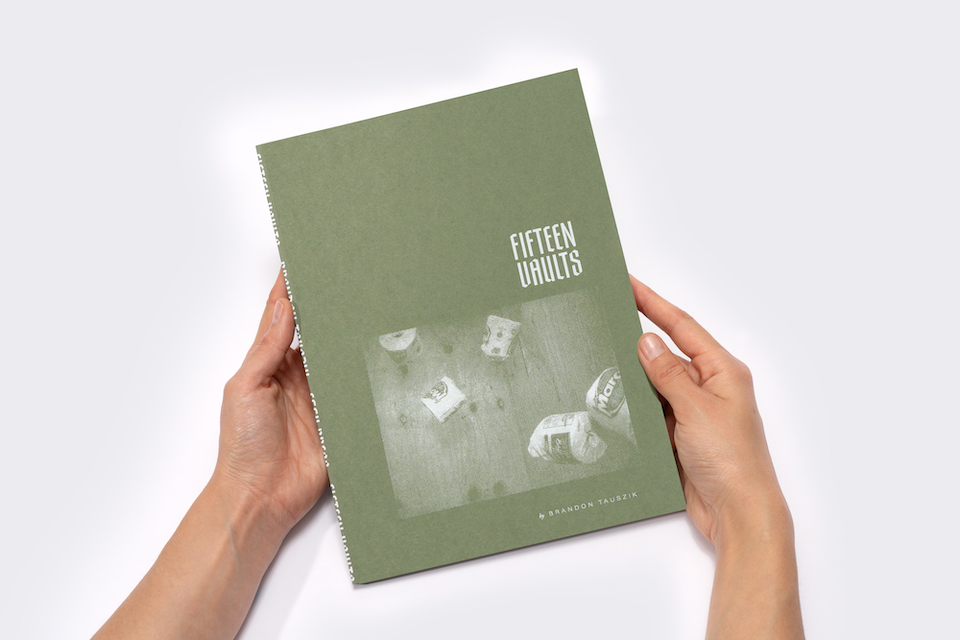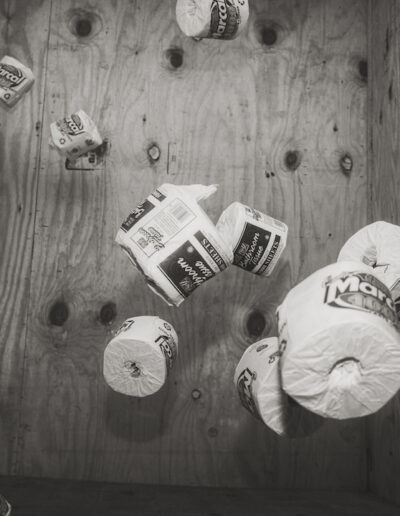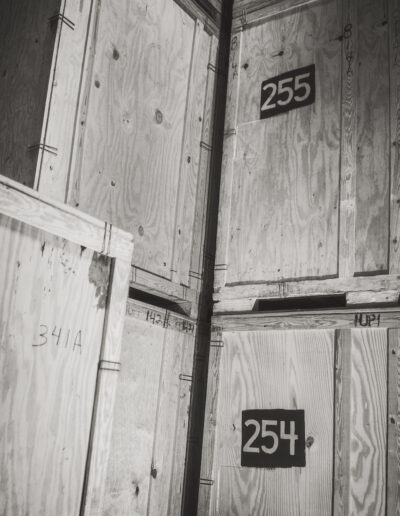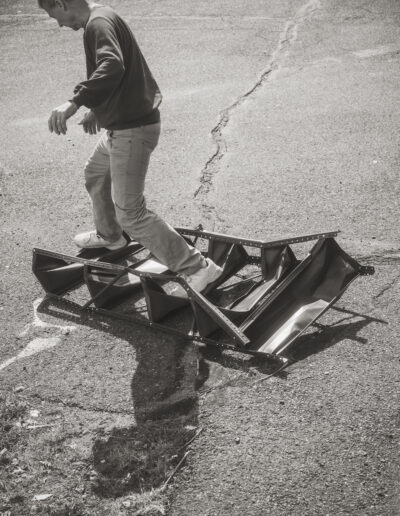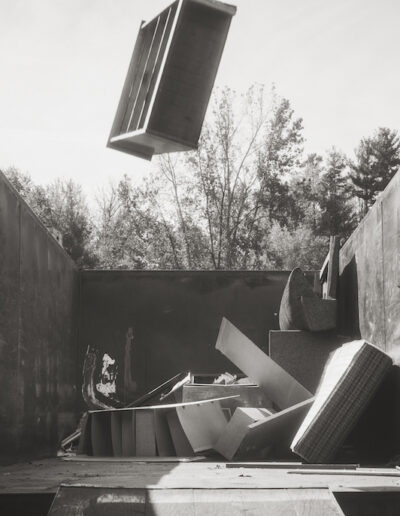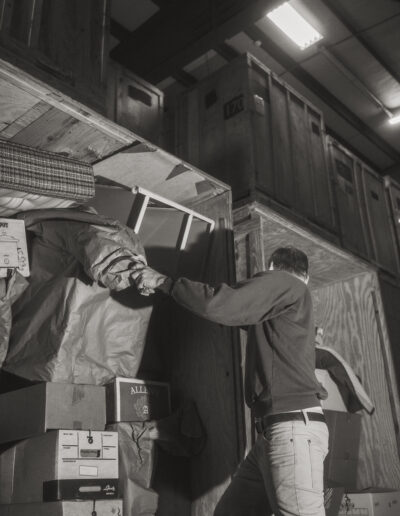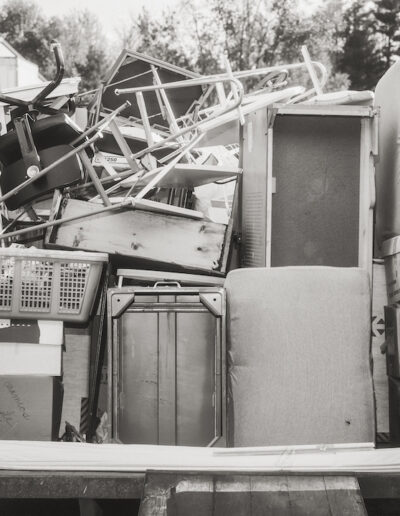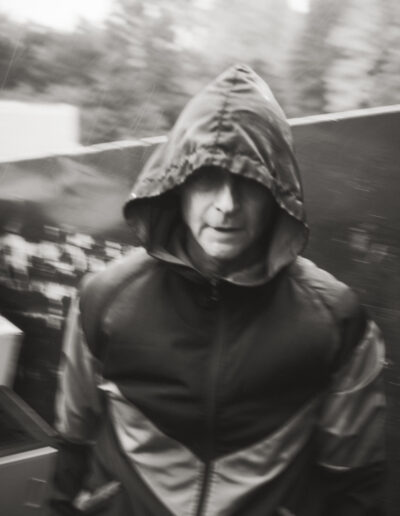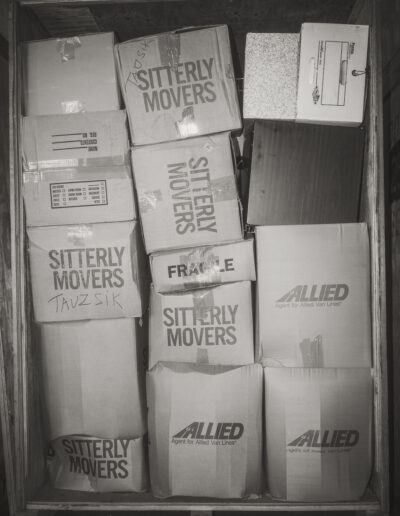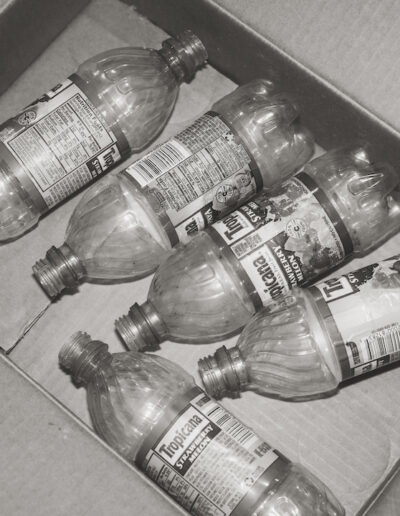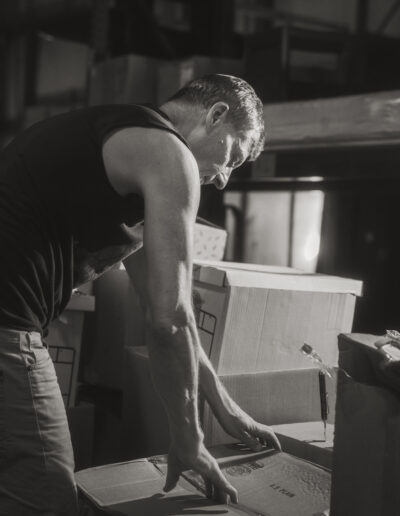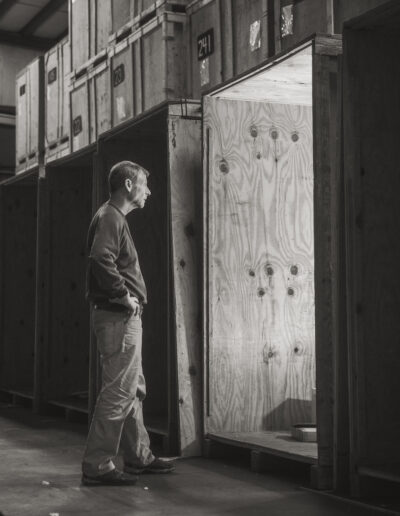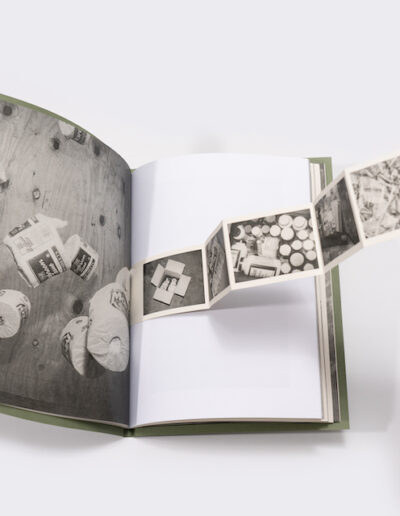Fifteen Vaults
photography by Brandon Tauszik
Brandon Tauszik’s monograph, Fifteen Vaults, published in 2023 by Eggy Press, tells the story of the exhaustive physical and emotional efforts of sorting through the remnants of his grandmother’s complicated life, marked by mental illness and decades of estrangement from her family.
The vaults’ baffling contents offer neither insight nor clarity into his grandmother’s interiority—it remains a mystery. The woman’s belongings, ultimately, are detritus that serve only to further obfuscate her life. Grappling with this monumental task, one box at a time, father and son come to acknowledge her life and legacy, strengthen their bond, and find a sense of closure in putting her to rest.
We asked Brandon about the experience of documenting his and his father’s journey and reconciling with a past where answers are elusive.
After my grandmother passed away, my parents began receiving large monthly bills from a storage facility in rural Massachusetts. Fifteen large storage vaults sat full of unidentified possessions. Over the course of a week, my father and I sifted through thousands of boxes inside the crypt-like depository. We filled four 40-yard dumpsters with the contents of the debris of her life.
What motivated you to turn your lens towards your own family for this project?
Unlike my previous projects, which often involved the experiences of others, this one was deeply personal. My grandmother Shirley was estranged from our family and lived alone in a YMCA for decades before passing away in 2020. My father and I were then tasked with the daunting task of sorting through her fifteen large storage vaults. We spent a week working together at a storage facility in rural Massachusetts, unearthing an endless amount of objects. I couldn’t help but ponder the universal relevance of our experience, particularly when so many others were grappling with loss due to the COVID-19 pandemic.
How did you approach documenting such intimate moments of your father’s journey without intruding on his privacy or emotions? Were there any challenges or advantages in balancing your roles as both a family member and a photographer?
The job was so large that my father asked me to come out and help him. I brought my camera with me instinctively, but not intending to create a body of work. The task of clearing the vaults was exhausting (and depressing), so I’d take occasional breaks to photograph. These moments behind the lens served as a way for me to process the profound journey we were both undertaking. A year later when I decided I wanted to publish the work, I broached the idea to my father to get his approval first.
Can you talk about the criteria guiding your choices, from initial selection to final curation? First, how you chose what to photograph, and then, your rationale for including certain images in the book while excluding others?
Nearly three years passed from when I made the initial trip to when the book was released. This passage of time allowed me to gain a perspective that I hadn’t initially possessed while shooting. I made hundreds of working prints and gradually sequenced the book that way. Additionally, I sought feedback from other artist friends as well as the book’s publisher Eggy Press.
Could you recount a particular moment or discovery from the vaults that significantly influenced or shaped your understanding of your grandmother, father, or family?
The photographs illustrate the profound lack of sentimentality in my grandmother’s objects. This was a pathological obsession that she nurtured over decades. The final image in the book is the last photograph I made on the trip: a portrait of my father peacefully smoking a cigar. I think he found cathartic release and closure in the destruction of her possessions.
What do you hope this project will reveal or convey about the complexities of family relationships and the process of reconciling with the past?
In our increasingly isolated world, my grandmother’s life serves as a poignant symbol of this pervasive loneliness. It saddens me to reflect on her inability to experience a more connected existence. However, amidst this journey, I found a deeper connection with my father. His upbringing by my grandmother was very challenging, and I’m forever grateful that he broke the cycle of neglect that defined his relationship with his parents when he raised me. Family dynamics are inherently complex, and I hope that those engaging with this project can discover healing within their own familial bonds.
Brandon Tauszik is an image-maker based in Los Angeles and Oakland, CA. Tauszik’s work examines elements of America’s social periphery and has appeared in places like The Washington Post, The Guardian, the British Journal of Photography, and more. He is the recipient of grants from the Pulitzer Center, California Humanities, as well as a fellowship from the Starling Lab at Stanford University. Follow @be_dizzle

